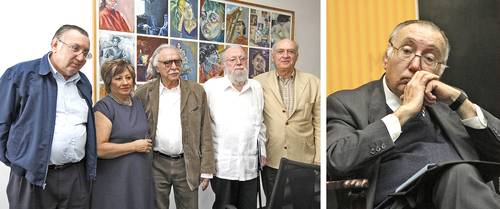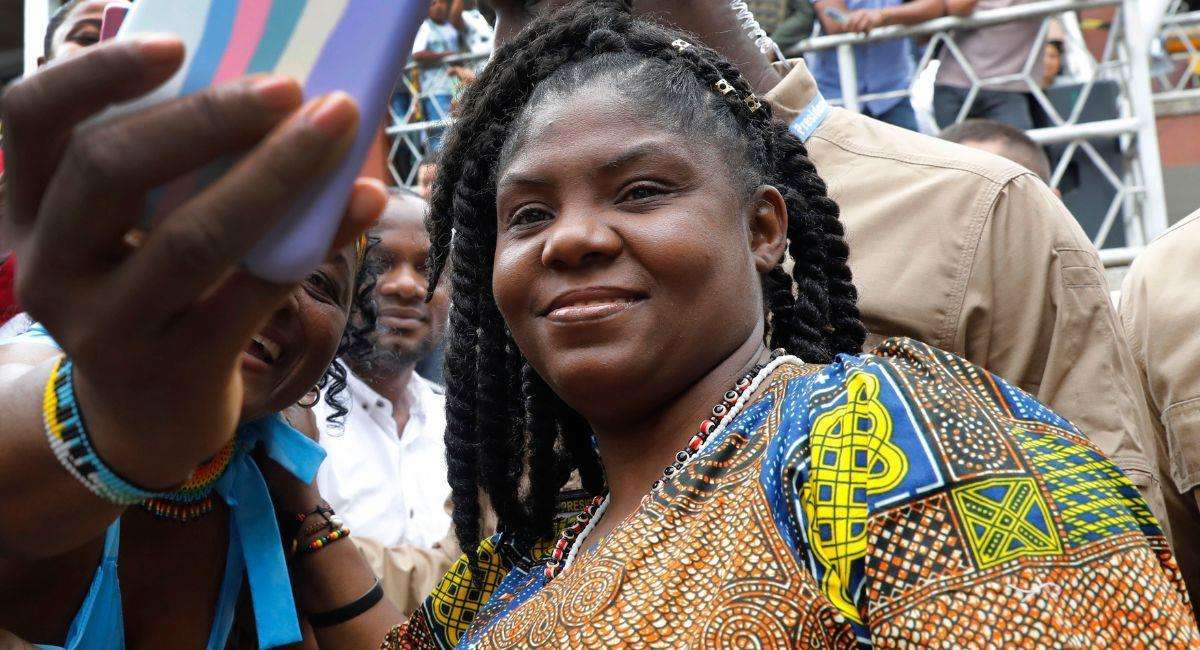▲ On the right, the founder of the Fray Vitoria Human Rights Center, who was 77 years old; in the other graph –from 2008–, with the director of this newspaper, Carmen Lira; the founding director of the day, Carlos Payan; the writer Hugo Gutiérrez Vega and Luis Linares Zapata, who was manager of the newspaper.Photo the day
Blanche Petrich
Newspaper La Jornada
Tuesday, January 10, 2023, p. eleven
Every time a shareholders meeting of our publishing house was about to start, the daybetween the murmurs of the partners, the managers swept the audience with their eyes, looking for the man who without prior agreement would be chosen as host and moderator of their meetings.
Because there was no important event in the newspaper that began without the baton of Fray Miguel Concha Malo, the Dominican religious who in the seventies opened the way for progressive priests to write and publish in the media of the time; that in the eighties he contributed to raising the scaffolding of human rights defense organizations; that rigorously detailed and systematized the advances and setbacks of policies on the matter; that made solidarity with the persecuted a daily task and as natural and necessary as breathing; who always distributed, left and right, blessings and smiles to believers and non-believers alike.
Miguel Concha died yesterday. He was 77 years old. This Tuesday he will be fired with a solemn mass in the chapel of the Cultural University Center (CUC), which he organized and directed for decades.
The Fray Francisco de Vitoria Human Rights Center, which he founded in 1984, called him sower of hope
.
On one occasion, he recounted in an interview: “We founded Fray Vitoria the same year it was born. the day, the Academy of Human Rights and other spaces. Some wanted him to be called Fray Bartolomé de las Casas. I said that this name was reserved for Chiapas, where Bishop Samuel Ruiz already worked hard to promote human rights, thinking that the defenders should come from the same town”.
It was a pioneering initiative at a time when not even the term human rights
was in use. The Eureka Committee, led by Rosario Ibarra, already existed, a movement of activists
recalls Pablo Romo, who was his student at the CUC, with subjects such as Christology and social moral theology, which marked him deeply. But the Vitoria Center is the first to systematize and link defense, training, information and promotion issues. And from there many other organizations followed.
. Romo was also a Dominican friar.
Pioneer
Concha founded the first specialized magazine, Justice and Peacewith another Dominican nun, Brigitte Loire, as well as Carlos Mendoza, Balbina Flores and two Salvadoran refugees: Roberto and Benjamín Cuéllar.
He is an essential figure in the human rights movement since its origin, with his systematic work. But he was also a pioneer in other fields, such as the incursion of the religious in the media.
.
Those were years in which death threats against defenders and raids on their homes and offices were common. Fray Vitoria was not saved.
It was in the old One plus one, the one founded by Manuel Becerra Acosta and Carlos Payán, where progressive priests broke the taboo of publishing in newspapers. Also in Process. At times when the news broke out directly in the ecclesial sphere, such as the death of John Paul I in 1978, or the assassination of Salvadoran Archbishop Óscar Arnulfo Romero, Concha burst into the newsroom like a fireball, seized a typewriter and wrote his impeccable journalistic piece from the heat of the information stove, typing like any other reporter.
At that time, in the late 1970s, the well-known Social Pastoral of the South was already having a strong influence, promoted by the so-called red bishops
: Sergio Méndez Arceo (Cuernavaca), Arturo Lona Reyes (Tehuantepec), Samuel Ruiz (San Cristóbal de las Casas), Bartolomé Carrasco (Oaxaca). Miguel Concha worked in that line as an adviser to that current.
Under the influence of the General Conference of the Latin American Episcopate, which in 1968 in Medellín traced the first transformative impulse of the ecclesial institution, Concha participated in the Puebla conference in 1979, where the preferential option was established in documents for the first time. of the poor.
Logically, when the Zapatista Army broke into Chiapas in 1994, Fray Miguel was very close to the eye of the hurricane. Days after the January 1 uprising, state intelligence services, seeking to identify the mestizo in the ski mask who was speaking for the indigenous rebels, targeted Fray Pablo Romo, who worked with Bishop Samuel Ruiz at the Fray Bartolomé Center. of the houses. Concha appeared that night at the offices of Payán with the young religious in question. This is Paul, not him. Subcomandante Frames”.
In December 2018, when Payán received the Belisario Domínguez medal in the Senate of the Republic, in his speech he revealed another anecdote between them that until then had not been made public.
It was before the Zapatista outbreak. Some peasants from Chiapas came to the office of Fray Vitoria, near Ciudad Universitaria, to denounce a plan already underway to assassinate the bishop of San Cristóbal, the tatik Samuel Ruiz, planned and financed by Altamirano farmers. The agreement had been taken and endorsed at the La Preciosa farm.
Concha immediately called the address of the day. Aware of all the details of the plot, Payán and Concha were received at the Ministry of the Interior by the then incumbent Patrocinio González Garrido, former governor of Chiapas. Several priests, all familiar with the serious matter, waited in the vestibule.
–And what do you want me to do? –the official told them, also a farmer and a well-known regional cacique.
“Whatever you consider,” answered Payán; but if something happens, you won’t be able to say that you didn’t know.
“I think that in essence what Miguel Concha achieved – reflects Romo – was linking the world of faith with that of human rights, linking the ideas of Santo Tomás and Bartolomé de las Casas with the world that at that moment in Mexico is opening to new ways of being and organizing. And as Méndez Arceo did, around solidarity. But also, what he never stopped doing is articulate and recover all that process in writing ”.








